Mark Mackay
Probabilistic emotion and sentiment modelling of patient-reported experiences
Jan 09, 2024Abstract:This study introduces a novel methodology for modelling patient emotions from online patient experience narratives. We employed metadata network topic modelling to analyse patient-reported experiences from Care Opinion, revealing key emotional themes linked to patient-caregiver interactions and clinical outcomes. We develop a probabilistic, context-specific emotion recommender system capable of predicting both multilabel emotions and binary sentiments using a naive Bayes classifier using contextually meaningful topics as predictors. The superior performance of our predicted emotions under this model compared to baseline models was assessed using the information retrieval metrics nDCG and Q-measure, and our predicted sentiments achieved an F1 score of 0.921, significantly outperforming standard sentiment lexicons. This method offers a transparent, cost-effective way to understand patient feedback, enhancing traditional collection methods and informing individualised patient care. Our findings are accessible via an R package and interactive dashboard, providing valuable tools for healthcare researchers and practitioners.
Revealing Patient-Reported Experiences in Healthcare from Social Media using the DAPMAV Framework
Oct 09, 2022


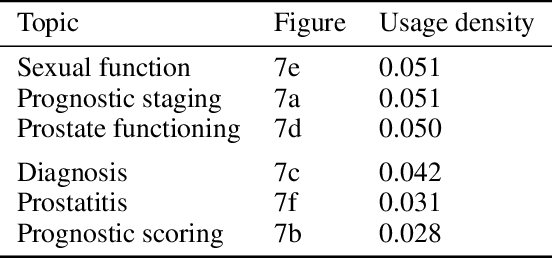
Abstract:Understanding patient experience in healthcare is increasingly important and desired by medical professionals in a patient-centred care approach. Healthcare discourse on social media presents an opportunity to gain a unique perspective on patient-reported experiences, complementing traditional survey data. These social media reports often appear as first-hand accounts of patients' journeys through the healthcare system, whose details extend beyond the confines of structured surveys and at a far larger scale than focus groups. However, in contrast with the vast presence of patient-experience data on social media and the potential benefits the data offers, it attracts comparatively little research attention due to the technical proficiency required for text analysis. In this paper, we introduce the Design-Acquire-Process-Model-Analyse-Visualise (DAPMAV) framework to equip non-technical domain experts with a structured approach that will enable them to capture patient-reported experiences from social media data. We apply this framework in a case study on prostate cancer data from /r/ProstateCancer, demonstrate the framework's value in capturing specific aspects of patient concern (such as sexual dysfunction), provide an overview of the discourse, and show narrative and emotional progression through these stories. We anticipate this framework to apply to a wide variety of areas in healthcare, including capturing and differentiating experiences across minority groups, geographic boundaries, and types of illnesses.
Symptom extraction from the narratives of personal experiences with COVID-19 on Reddit
May 21, 2020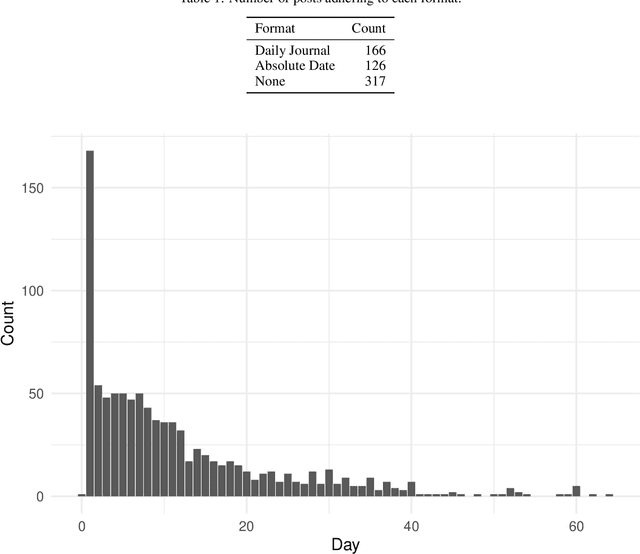
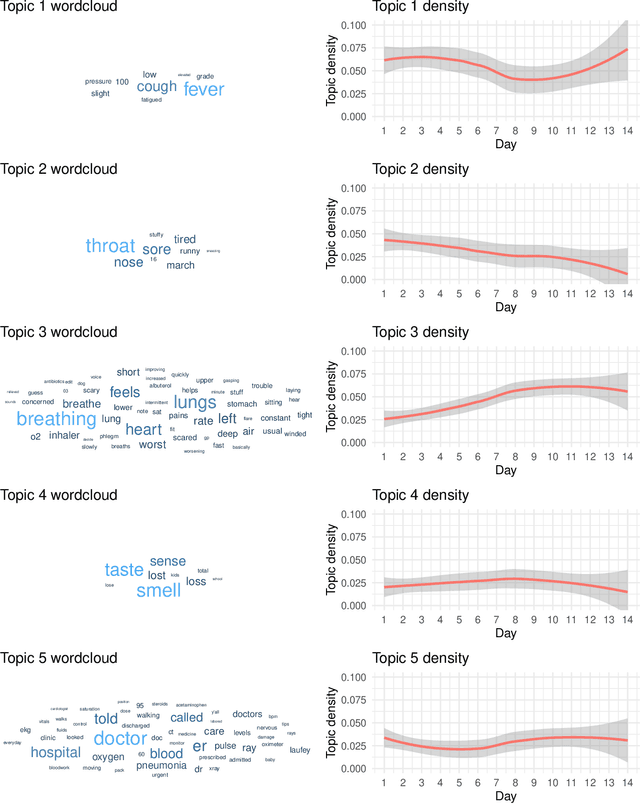
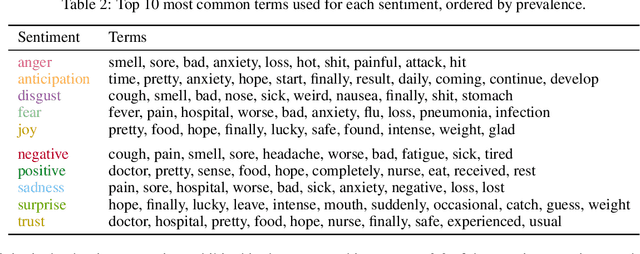
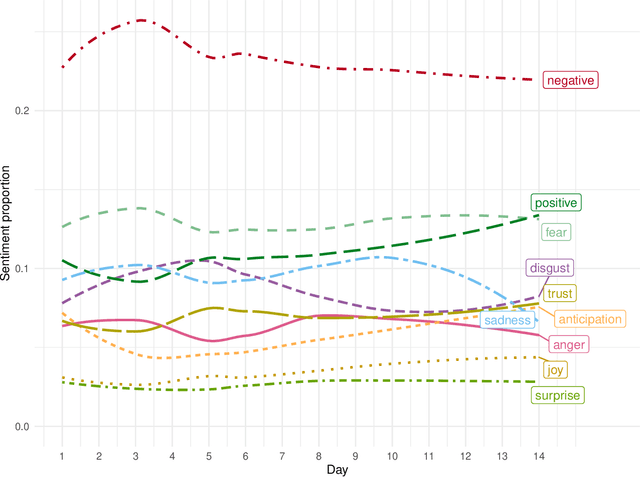
Abstract:Social media discussion of COVID-19 provides a rich source of information into how the virus affects people's lives that is qualitatively different from traditional public health datasets. In particular, when individuals self-report their experiences over the course of the virus on social media, it can allow for identification of the emotions each stage of symptoms engenders in the patient. Posts to the Reddit forum r/COVID19Positive contain first-hand accounts from COVID-19 positive patients, giving insight into personal struggles with the virus. These posts often feature a temporal structure indicating the number of days after developing symptoms the text refers to. Using topic modelling and sentiment analysis, we quantify the change in discussion of COVID-19 throughout individuals' experiences for the first 14 days since symptom onset. Discourse on early symptoms such as fever, cough, and sore throat was concentrated towards the beginning of the posts, while language indicating breathing issues peaked around ten days. Some conversation around critical cases was also identified and appeared at a roughly constant rate. We identified two clear clusters of positive and negative emotions associated with the evolution of these symptoms and mapped their relationships. Our results provide a perspective on the patient experience of COVID-19 that complements other medical data streams and can potentially reveal when mental health issues might appear.
 Add to Chrome
Add to Chrome Add to Firefox
Add to Firefox Add to Edge
Add to Edge